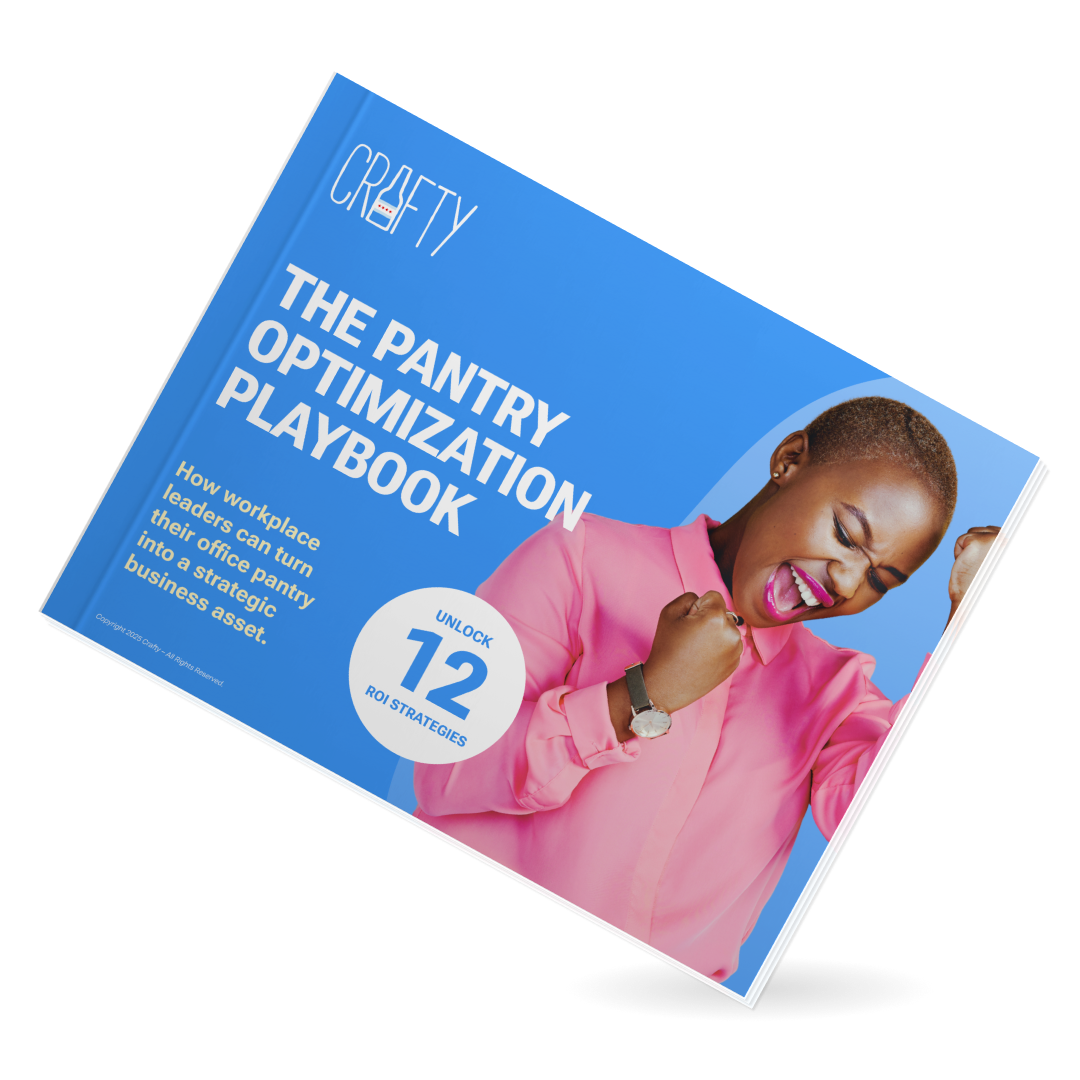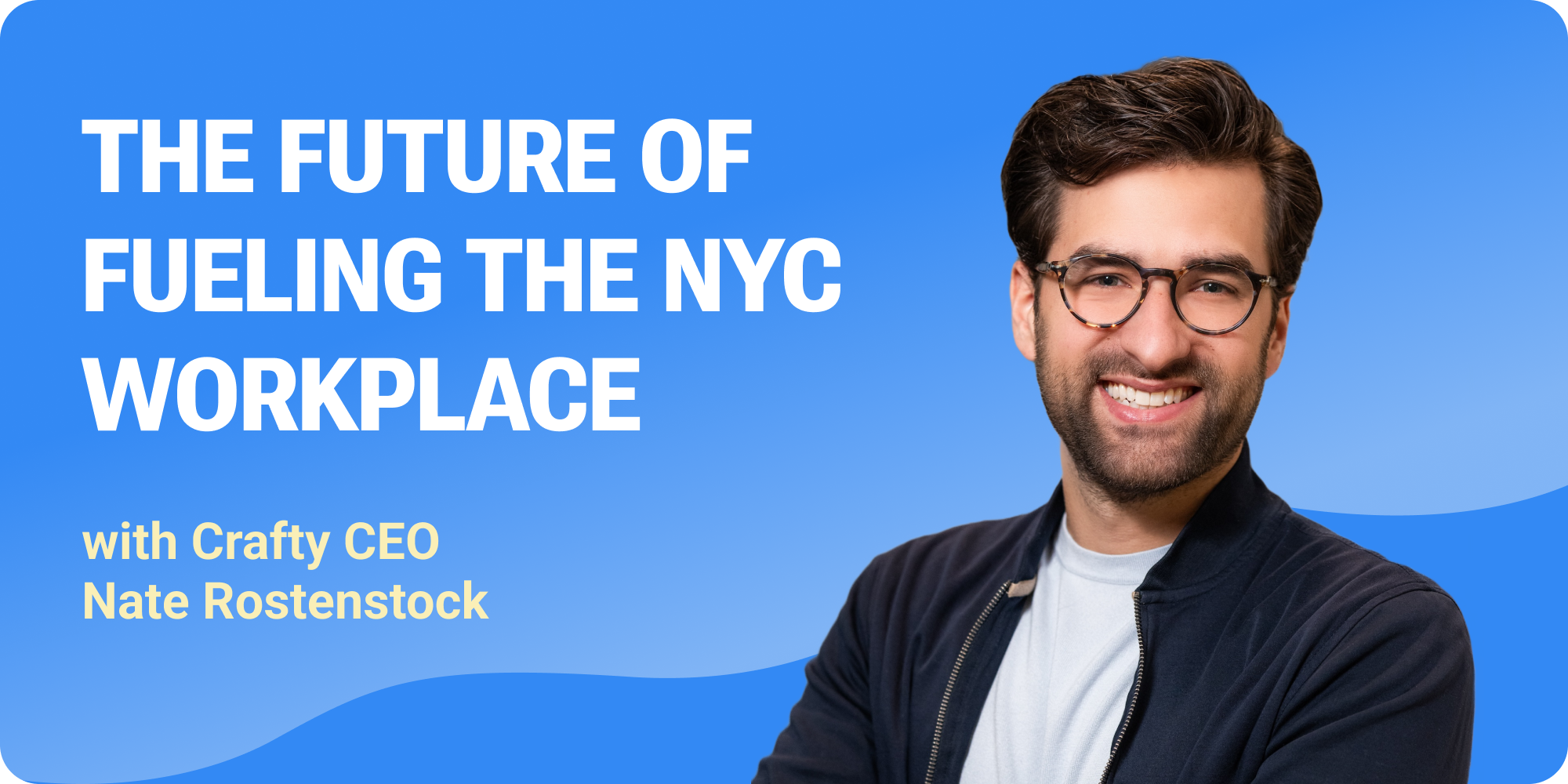Chris Ritter is the Co-Founder and Chief Operating Officer of Crafty, where he has helped lead the company since its founding in 2015. A Northwestern alumnus with a background in professional sports and leadership, Chris brings a unique perspective on teamwork, performance, and operational scale. Today, he is focused on driving operational excellence at scale—building the systems, teams, and infrastructure that leverage Crafty’s technology platform to deliver consistent, high-quality experiences across every client location.
Operational Control is Your Breakroom's Competitive Advantage
How office pantry programs lose control at the last mile with Crafty COO Chris Ritter.
✍️ Written by Chris Ritter
🕚 5-Minute Read • Published Friday, August 15, 2025

When we started Crafty, we weren’t just solving for snacks; we were solving for control. I’ve seen what happens when even well-intentioned strategies fall apart at the last mile. The truth is that it’s not enough to have a great pantry strategy on paper. If you can’t verify the execution, you don’t control the outcome.
Your office pantry waste doesn’t show up with a flashing neon sign on your invoices. It shows up quietly: a few missing products here, too much of a product there, and not enough visibility across the board. Over time, that waste erodes your budget and adds up in dollars, and in time, when you eventually have to chase down where everything went wrong.
That’s why we focused on accountability in our Pantry Optimization Playbook. Verification of what you spend is a foundational strategy for any office pantry program that aims to perform. Without systems to verify execution, even the strongest strategy can start to slip.
Table of Contents:
Where Waste Really Comes From
Pantry waste doesn’t always look like waste. It hides in the quiet gaps between what was supposed to happen and what actually did. A product gets missed on the order, but no one catches it. The delivery arrives, but a third of it isn’t what you expected. Inventory levels creep out of sync. Small misses that don’t show up on a report until they're a much bigger problem.
Waste happens when your program cannot keep pace with reality: It is not just about a missed product here or there; it's about systems that fail to adapt and blind spots pull your team into fire drills. There are two big drivers of waste:
- Programs that fail to adapt to changing needs: Order volumes that run on autopilot, low-performing products that eat up the budget, or a lack of active program management that lets issues fester.
- Programs that lack transparency: No delivery verification, lack of detailed reporting into spend, and unclear service schedules and task management.
Of the two drivers, lack of transparency can do the most damage the fastest. It hides what is happening, makes it harder to pinpoint problems, and slows your ability to act. You pay twice: first for a service that is underdelivering, and again for the internal hours spent fixing it. Over time, budget accuracy erodes, trust in the numbers fades, and small inefficiencies snowball into real operational drag across the organization.
That is where accountability comes in: turning what should happen into what happens.
What Accountability Looks Like
At scale, execution breaks down without verification. It’s not enough to hope everything went right; you need systems that confirm it. Real accountability starts at the point of delivery, reinforced by tools that turn expectations into measurable actions.
Here’s what that looks like in practice:
- Centralized verification. Every order, every delivery confirmation, every shift; all visible in the Crafty Platform. It is 2025, and this kind of visibility should be the norm, which is exactly why we made it a reality.
- Item-level checks at the point of delivery. If you don’t know exactly what arrived, you can’t validate the spend or forecast the next order.
- Visual proof is baked into every shift. Teams upload photos directly into the platform so clients have a clear record of what happened.
Accountability gives leaders what they need most: confidence. Confidence that dollars are spent as intended, that teams aren’t wasting time chasing fixes, and that the foundation is solid enough to scale.
UNLOCK MORE ROI FROM YOUR PANTRY
This playbook outlines 12 proven strategies to create efficiencies, reduce waste, maximize spend, and drive a quality experience that accelerates your organization.
Lessons from the Breakroom: San Francisco
In the San Francisco Bay Area, where expectations are high and workplace complexity runs deep, companies can’t afford waste. One major investment firm faced the challenge head-on: with multiple daily snack touchpoints, evolving dietary needs, and multiple offices to manage, they needed more than a standard delivery service; they needed precision.
Their workplace lead shared how Crafty’s technology became the secret ingredient to operating efficiently. By pairing high-quality service with centralized reporting, they could verify what was delivered, track what was consumed, and catch issues before they grew. That level of visibility minimized waste, maintained consistency, and gave them confidence in their program.
"Having the Crafty dashboard and technology is huge. Reporting features are really important to us, and we just haven't been able to find that in any other pantry provider.
I was spending about 70% of my time managing the pantry, due to poor vendor support and no tech. With Crafty, I now spend less than 15% of my time on food and beverage!”
Regional Workplace Leader, National Investment Firm
When the details are right, the dollars follow. That’s how you turn day-to-day operations into a competitive edge
Conclusion
If you’re serious about operational efficiency, you need to build accountability into the core of your office snack program. Here’s where to start:
- Define your accountability standards. Be clear about what good looks like, and hold every partner to it.
- Audit your current program. How are deliveries verified today? What’s missing?
- Implement proof-based systems. Use tools, photos, and data that turn trust into confirmation.
Top-performing organizations don’t treat waste as a cost of doing business. They build accountability into their systems from the start to prevent wasted product, dollars, and time. That level of discipline creates programs that run smarter, deliver more, and earn the confidence of every stakeholder involved.
CRAFT
A BETTER
WORKPLACE
Elevate your office food and beverage program with enhanced services managed in one innovative, centralized platform.




